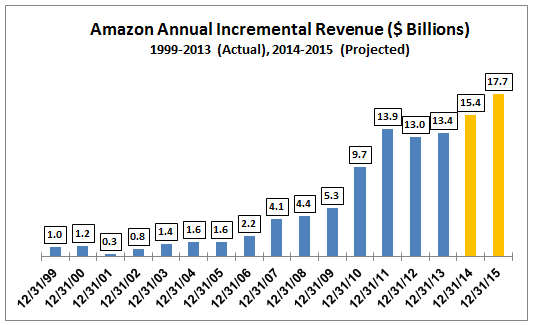The obligatory Amazon take
By now you have read (or at least heard about), the New York Times' blistering takedown of life working at Amazon, your favorite online shopping destination for just about anything you'll ever need, (and lots and lots of things you don't). If you are interested in work, workplaces, culture, and performance, the piece is definitely worth a long read, and it just might make you pause for a moment before you order your next shipment of stuff from the giant retail machine.
Most interestingly, the Times' piece largely focuses on working culture for Amazon's white collar or professional workers, and not on the many, many thousands of Amazon employees and contractors that toil away in their massive distribution centers, often in extremely harsh conditions. Most Amazon customers already know how tough the warehouse workers have it at Amazon, and judging by Amazon's continued revenue growth, we have shown that we really don't care about people in the warehouses all that much. We just want our stuff faster.
The responses to the Times piece have more or less fallen into two camps - one; Amazon is a horrible, terrible, dystopian place and shame on them for not (for some inexplicable reason), treating their white collar professional staff 'better' than their front-line warehouse staff; or two, creating a high-performing organization demands focus, dedication, long hours, and most importantly, no tolerance (for long anyway), for average performance. No exceptions. And as the Times reports this lack of tolerance for anything less than high performance and an almost singular dedication to the Amazon cause can look really cold, ugly, messy, and heartless.
So where does the 'truth' lie in all of this? Kind of hard to say unless you have direct experience working at Amazon. Chairman and Founder Jeff Bezos issued a kind of non-denial denial of the Times piece. Something along the lines of 'This is not the Amazon I know. This can't really be true or no one would want to work here.' That sort of thing. Note he didn't really say 'This is NOT true, just that it probably can't be true.'
And ultimately, like in most other complex situations the real truth is somewhat blurry, inconsistent, and as always very, very subject to interpretation and bias. What do I think? Well since it is my blog I get to share.
I think that any organization that, at least for a time, was willing to subject any of its workforce to the kind of brutal conditions like at the 115 degree Pennsylvania warehouse where workers had to be carried off by paramedics, has pretty much determined that performance, or rather the ability and willingness to sacrifice in order to achieve high performance, is what matters most.
Amazon is/has been willing to push warehouse workers to the point of heat exhaustion and collapse, why should we be surprised (and angered), that it is willing to push its professional staff into 80-hour weeks, emails and texts at all hours of the night, and has, if the Times piece is true, to have persistently pushed employees to think of their work first, last, and at every time in between?
I think, more or less, this 'outrage' against Amazon is at least a little misplaced. Most of us, by virtue of how we spend our money, (and let's not even talk about under what conditions our iPhones are assembled), don't really care how badly most companies treat their workers.
We only start to care when these workers begin to, uncomfortably, look a little too much like us, and do the same kinds of jobs that we do.

 Steve
Steve
Reader Comments (3)
Dear Steve, you make a valid point. Amazon is a legitimate business and has chosen a culture that helps the business thrive in harsh economic conditions. If the same facts in that article were viewed with a different lens, one could argue that Amazon is leading the way in HR practices by using data driven performance assessments and innovative motivation techniques.
People practices are not one size fits all.
I choose to believe that Jeff Bezos had no idea, and I find it amazing. In large companies top management is again and again being served up vanilla, filtered, politically-correct feedback from employees, and that creates a huge rift between them and the front lines. Perception management and feedback management should not be that hard, and the C-suite - even the board! - should find it easy to skip level, identify hot spots and act and communicate against them.
When it comes to your comment Steve, I whole-heartedly agree and there is a quite relevant analogy with the world of sports. The average crowd loves being entertained and does not care about performance enhancing drugs. They love Barry Bonds, they (used to, or still) love Lance Armstrong, they love new world records being set. Now I imagine if they'd realize their neighbors were using EPO to run faster on Sunday mornings, that'd be quite an outrage ;)
Amazon have builld a successfull echo system of sales for thrd party sellers. To unlock the potentional of new avenues on amazon make sure that your brand is registered with amazon. Amazon Brand Registry Advantages